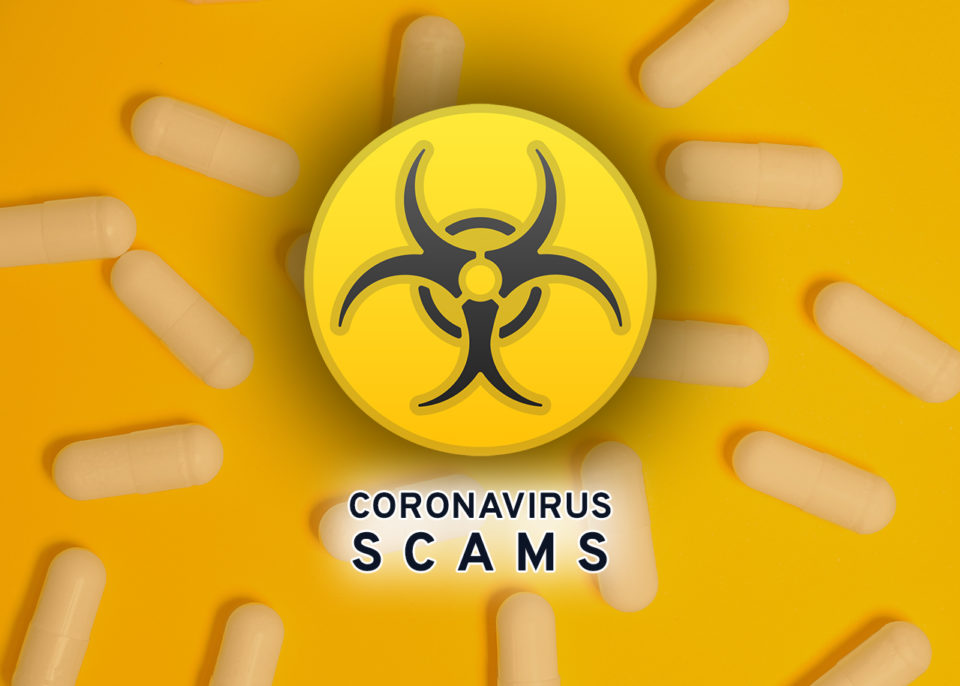Beware of scammers trying to get your personal information or your COVID-19 Economic Impact Payment!
The Internal Revenue Service (IRS) will begin to distribute COVID-19 Economic Impact Payments in a matter of weeks. For most Americans, this will be a direct deposit into your bank account. For the unbanked, elderly or other groups that have traditionally received tax refunds via paper check, they will receive their economic impact payments in this manner as well.
With any good news story from the IRS, comes an opportunity for criminals and scammers to take advantage of the American public.
- Scammers may try to get you to sign over your check to them.
- Scammers may use this as an opportunity to get you to “verify” your filing information in order to receive your money, using your personal information to file false tax returns in an identity theft scheme.
- Between these two schemes, everyone receiving an economic impact payment is at risk.
The Internal Revenue Service – Criminal Investigation (IRS-CI) is working tirelessly alongside our civil counterparts and law enforcement partners to identify scams and halt wrongdoers from taking advantage of the American people. “Taxpayers should be extra vigilant for unsolicited phone calls or emails concerning their economic impact payments,” said Justin Campbell, Special Agent in Charge of the Seattle Field Office for IRS-CI. “The IRS will not call or email you about your payment. IRS-Criminal Investigation is stepping up our efforts in coordination with the Department of Justice to aggressively investigate anyone that seeks to defraud our community members during this crisis.”
“We are aware of instances of consumer fraud stemming from the COVID-19 public health emergency. While Americans work to protect themselves and their loved ones from the threat of COVID-19, some individuals are actively trying to profit off of this emergency,” said U.S. Attorney Billy J. Williams. “If you or someone you know believe you’ve been the target or victim of an outbreak-related fraud scheme, please contact law enforcement immediately.”
Top Line Message from the Internal Revenue Service
The IRS will deposit your economic impact payment into the direct deposit account your previously provide on your tax return (or, in the alternative, send you a paper check). The IRS will not call and ask you to verify your payment details. Do not give out your bank account, debit account, or PayPal account information – even if someone claims it is necessary to get your economic impact payment. Beware of this scam.
If you receive a call, do not engage with scammers or thieves. Just hang up. If you receive texts or emails claiming that you can get your money faster by sending personal information or clicking on links, delete them. Do not click on any links in those emails.
Reports are also swirling about bogus checks. If you receive a “check” in the mail now, it’s fraud – it will take the Treasury Department a few weeks to distribute the payments. If you receive a “check” for an odd amount (especially one with cents), or a check that requires that you verify the check online or by calling a number, it’s fraud.
Beware of Scams and Schemes
————————————————————————————————————————————–
IRS-Impersonation Telephone Scams
An aggressive and sophisticated phone scam targeting taxpayers, including recent immigrants, have been making the rounds throughout the country. Callers claim to be employees of the IRS, but are not. Victims are told they owe money to the IRS and it must be paid promptly through a pre-loaded debit card or wire transfer. If the victim refuses to cooperate, they are then threatened with arrest, deportation or suspension of a business or driver’s license. Or, victims may be told they have a refund due to try to trick them into sharing private information.
With COVID-19 scams, they may urge you to pay this fake “debt” with your economic impact check. For those who receive an actual check, they may ask you to endorse it and forward to them for “payment of past debts.”
Remember: Scammer Change Tactics – Variations of the IRS impersonation scam continue year-round and they tend to peak when scammers find prime opportunities to strike – like the new economic impact check being sent.
Surge in Email, Phishing and Malware Schemes
Scam emails are designed to trick taxpayers into thinking these are official communications from the IRS, tax industry professionals or tax software companies. These phishing emails ask taxpayers about a wide range of topics – related to refunds, filing status, ordering transcripts, and verifying PIN information – in order to steal your personal information or file tax returns.
When people click on links from these phishing emails, they are taken to sites designed to imitate an official-looking website, such as IRS.gov. The sites may also carry malware, which can infect people’s computers to steal their files or record their keystrokes.
Also be aware of email phishing scams that appear to be from the IRS and include a link to a bogus web site intended to mirror the official IRS web site. These emails contain the direction “you are to update your IRS e-file immediately.” The emails mention USA.gov and IRSgov (without a dot between “IRS” and “gov”). Don’t get scammed. These emails are not from the IRS.
Don’t be a victim! Visit www.irs.gov or www.irs.gov/coronavirus
###









